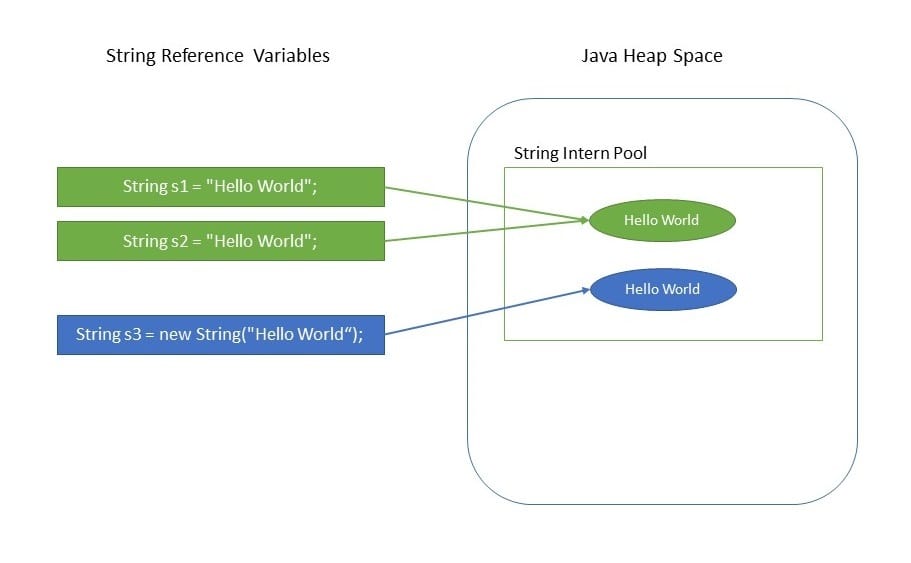Why Are Strings Immutable in Java? Enhancing Code Dependability
Wiki Article
Immutable Strings: A Key Component in Ensuring Information Consistency and Reliability
In the realm of data management, the value of immutable strings can not be overemphasized. These constant series of characters play a pivotal duty in upholding the stability and accuracy of information within systems. By keeping a state of immutability, information consistency is ensured, cultivating a structure of integrity whereupon essential processes count. The principle of immutable strings goes beyond mere technicality; it is a cornerstone in the complicated web of information administration. As we discover the benefits, execution strategies, and useful applications of immutable strings, a clearer image emerges of their indispensable nature in securing the electronic landscape.The Concept of Unalterable Strings
Unalterable strings, a basic idea in programs, describe strings that can not be customized once they are produced. In essence, as soon as a string worth is designated, any operation that appears to modify the string really creates a new string. This immutability guarantees information uniformity and dependability in applications, as it protects against unforeseen adjustments to the original information.
Advantages in Data Uniformity

Data uniformity is crucial in different elements of software application growth, consisting of data source monitoring, multi-threaded environments, and distributed systems (Why are strings immutable in Java?). Unalterable strings add dramatically to attaining this consistency by preventing information corruption because of concurrent access. In scenarios where numerous procedures or strings interact with the same information at the same time, unalterable strings work as a safeguard versus race problems and synchronization problems
In addition, the immutability of strings streamlines debugging and screening procedures. With immutable strings, designers can rely on that when a string is set, it will stay unchanged, making it easier to map the source of errors and ensuring that examination situations generate consistent outcomes. This reliability in information taking care of ultimately brings about extra stable and robust applications.

Applying Unalterable Strings
Guaranteeing the immutability of strings needs a thoughtful strategy to their implementation in software application advancement. One vital method is to design string courses in such a way that prevents alterations when a string things is created. By making strings unalterable, programmers can improve information consistency and integrity in their applications.To apply immutable strings successfully, developers must prefer developing new string items instead of customizing existing ones. This method ensures that when a string is designated a value, it can not be transformed. Additionally, any kind of procedure that appears to change the string should produce a brand-new string with the desired changes rather than changing the initial.
Moreover, utilizing unalterable strings can simplify concurrency administration in multi-threaded atmospheres. Since unalterable strings can not be transformed after production, they can be securely shared among multiple strings without the risk of information corruption.
Duty in Dependability Assurance
In software application advancement, the use of unalterable strings plays an essential role in making sure the dependability of data procedures. Immutable strings, as soon as created, can not be modified, guaranteeing that the information they stand for continues to be consistent throughout the application's execution. This immutability residential property supplies a level of guarantee that the data being processed will not be accidentally altered, leading to unexpected end results or mistakes in the system.By including unalterable strings into software layout, designers can improve the reliability of their applications by minimizing the dangers related to mutable information - Why are strings immutable in Java?. Immutable strings aid in stopping information more corruption or unintended modifications, which can be especially crucial when taking care of sensitive information or when data integrity is critical
Moreover, using immutable strings simplifies concurrent processing, as multiple threads can securely accessibility and share string information without the risk of one string changing the content while an additional is reviewing it. This element contributes significantly to the total integrity of the software system, ensuring regular and foreseeable habits in information managing procedures.
Applications and System Combination
The smooth assimilation of unalterable strings right into various applications and systems is crucial for making certain durable information consistency and reliability throughout varied technical environments - Why are strings immutable in Java?. Unalterable strings play a critical role in boosting the integrity of data exchanges and communications within facility software program environments. By integrating unalterable strings into applications, programmers can have a peek at these guys alleviate the risks connected with data tampering, unauthorized adjustments, and unintended modifications, therefore strengthening the general safety and security posture of the systemIn the context of system assimilation, unalterable strings function as a fundamental component for developing safe and secure communication channels and assisting in smooth data transfers between various elements. Their immutable nature ensures that data transmitted in between systems remains unchanged and proven, lowering the possibility of inconsistencies or errors that might jeopardize the honesty of the entire system. Furthermore, immutable strings can enhance interoperability between inconsonant systems by giving a standardized style for information representation, allowing a lot more reliable data processing and exchange procedures throughout interconnected systems. By taking on unalterable strings in applications and system combination processes, companies can strengthen their information framework and promote the integrity and uniformity of their details properties.
Conclusion
Finally, unalterable strings play an important function in maintaining data uniformity and dependability in numerous applications and system integrations. By making certain that strings can not be transformed as soon as produced, the honesty of information is maintained, minimizing the danger of errors and variances. Carrying out unalterable strings can dramatically improve the reliability of systems, eventually leading to even more exact and dependable information processing.
Report this wiki page